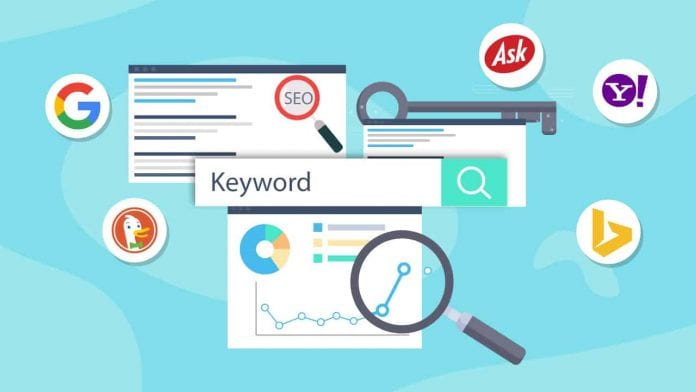Here are the most common traps and errors occurring with SEO on the page that can harm the ranking of your website, or prevent it from climbing to the top of Google’s SERPs as it really deserves. In the following short checklist, I tried to summarize the very basics of SEO web site audit so that you would perform a quick spot check procedure and take the necessary steps. In the end, this should help you determine if something is already wrong or can probably delay your overall performance in organic SEO and high ranking website positioning in relevant Google Search lists. That said, Let’s explore some details in depth.
According to localseosearch.ca here are tips to avoid common errors in the SEO on-site and benefits of rank your site as it deserves.

Incorrect/inaccurate targeting of keywords
Of course, it may seem obvious, but choosing faulty keywords for main content targeting – is among the most common errors in the SEO on the page when ranking websites seem to be a misaligned process (i.e. about the user’s intent behind the search). In other words, the identification of a potentially winning balance between sufficiently high search volumes and their current level of keyword competition is something truly intuitive. In other words, you should never focus on keywords that will not lead to better sales or leads. But how do you make sure you’ve chosen the right targets? Here are two basic methods to check this:
Perform in-depth keyword searches, supported by a competitive analysis of your most successful niche opponents. Ultimately, easily use the best results found for the web copy and the rest of the key items on your competitors ‘ page. To do this, I recommend using one of these proven analytics tools, such as Moz’s Open Site Explorer (Moz), or SEO Spider (Screaming Frog).
Another way to get an overview of your keyword competition, compared to the actual performance of your main keywords, is to test each potentially winning search term with a paid search (otherwise, from ads to pay per click). All you need is to avoid taking relevant keywords (mainly because of their too strong competition) to focus more on their long-tailed variations, which are really specific to your customers / potential buyers. Experiment with auctions, run A / B tests, following your metrics linked to keywords in real time via Google Analytics – and you will get the right understanding of keywords that need to be kept, and search terms probably thrown away or at least sidelined for now.

Creation of poor quality content
No boring text in plain text will help you stand out from the research competition. Therefore, the only reasonable way to get you closer to Google’s best results is to create truly amazing content that would engage the maximum number of target users. Think about reorganizing some of your content on the plain text page, such as custom graphics, attractive spreadsheets, intriguing lists, real cases studied, video tutorials /guides/reviews, and no doubt anything that would really be worth sharing, mentioning, relaying or linking.
Incomplete / incorrect optimization on the page
- Missing meta Descriptions, title tags or alt Image tags (and their well-optimized file names too).
- Ignore internal links or misuse their keyword-rich link text anchors.
- Careless use of the exact keyword link anchorages (I personally recommend eliminating them at all).
Do not use an appropriate sub-header / sub-header structure for a clear and sharp separation and a visually appealing appearance of your copy/body of content. And don’t confuse it with your page title tags.
Absence of PageSpeed fast enough, or UX Mobile positive.
Generally poor optimization for sufficiently strong action incentives (i.e., absence of easy-to-use buttons, clickable banners / keyword-rich inbound links, etc.).

Why SEO rank checker systems are useful?
There are many useful measures that require analysis. You can track the success of your marketing campaign, by delving into statistics such as click rates, conversions, routes, number of website visitors, etc.thus, many local businesses continue to track their rankings to get valuable data and information that is worth knowing if you want to improve your online presence and SEO.
In addition, monitoring general ranking changes can help optimize your website search engine and indicate where you need to make changes. And even if you’re not interested in your SEO site, it’s worth knowing if your site’s ranking is up or down.
If your rank is geo-localized, you can observe how your rankings vary from neighbourhood to neighbourhood.
Another advantage that SEO filing tracking systems provide is the tracking of rankings. Every time your ranking drops, you can see what factors have caused this situation and how you can improve it.
By using local ranking tracking systems, you can search for terms that rank in the local search engine and identify your optimization opportunities. In addition, you can check the ranking of your competitors and the search terms for which they rank. You can check which of their pages outclasses yours and make your SEO improvements online based on the data obtained.
You can read more at Outrankio.









